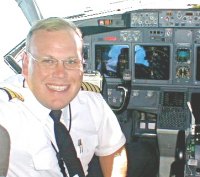This Forum is a place for Piper Comanche pilots to communicate and discuss technical issues
If you join or reset a password, please check your Spam Email box for emails from Admin at ComancheTechTalk.com
Please put your questions on the forum as well so everyone can read and respond. Someone else might be having similar questions.
All questions or topics on the Forums automatically get sent to the Tech team as well.
PA 30 Buyers Guide
My last airplane was a BO A36 and I found a very detailed buyers guide that helped walk me through all the airplanes nuances and varies ADs. Given the age of the PA 30 it would be great to have that same kind of guidance. I will of course still hire a pre buy consultant / AMT when it is time to make a purchase, but I would like something to help with the initial search. ![]()
I have also provided a list of questions for would be sellers. Please let me know if there is anything you would add or change.
PA 30 - Buyer Questions
1 Useful Load
2 Hours flown in the last 5 years, broken down by year.
3 How many years under current ownership
4 Historical location of aircraft
5 Complete log books
6 Known damage
7 Maintenance History
8 Average annual expense and most expensive year
9 Name of servicing shop and AMT
10 Liens
11 Reason for selling
12 Corrosion
13 Bladder replacement
Right Main
Right Aux
Left Main
Left Aux
12 Engine overhaul
Year
Shop Name
Location
13 Age of engine fuel pumps, any weeping/leaks
14 Fuel Valves replacement
15 Starter replacement
16 Gear ADs
17 Status for the aileron spar doubler inspection for cracks
18 Autopilot fully functional
19 Co-pilot brakes
20 5/6 Seat
Note, I did come across a Piper inspection checklist from prior postings, but it's too detailed for my initial search. That said I attached it to this posting so others may use it.
Thank you,
Jack
- Attachments
-
 PA-30 Inspection Checklist.pdf
PA-30 Inspection Checklist.pdf- (129.71 KiB) Downloaded 46 times
- Jack Steinhauer
- Posts: 3
- Joined: Fri Feb 24, 2017 5:38 am
Re: PA 30 Buyers Guide
Zach

Zach Grant L1011jock- Technical Advisor
- Posts: 1404
- Joined: Mon Mar 22, 2004 4:35 pm
- Location: Indianapolis KEYE
Re: PA 30 Buyers Guide
Especially on gear details, cost of annual and useful load.
Even if a Twin has been weighed, it may not have been per Piper Spec.
Suggest adding PA39/PA30C/Rs. Mostly same plane, just one engine counter-rotated.
Not specific to TwinCos but also suggest more detail on flying history. I'd ask hours by month in last year.
Personal bias - I would take our Lycomings over Continental engines any day.
Patricia Jayne (Pat) Keefer ICS 08899
PA-39 #10 Texas

N3322G- ICS member

- Posts: 1911
- Joined: Thu May 08, 2008 1:58 pm
- Location: Fort Worth, Texas area
Re: PA 30 Buyers Guide
- LeWayne Garrison
- Posts: 73
- Joined: Tue Aug 16, 2011 3:37 am


